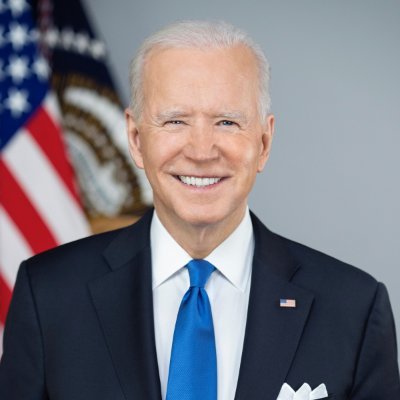I thought about this yesterday when I was trying to explain the difference between socialism and communism. Even such a simple question requires so much foundational information. I couldn't just say they were different stages of society, because communism is really more a vector of transformation for societies, and to even understand how these societies transform you have to understand dialectical and historical materialism. So I'm revising my post to explain what a dialectic is and I realize I'm already in my third paragraph. Not only is no layman going to read this because its just boring philosophy mumbo jumbo, but I've wasted the last 20 minutes writing out this thing that I eventually just end up deleting anyway.
What we need is a streamlined way of propagating theory for a new online age. The Communist Manifesto was supposed to be the quick and dirty version of theory to propagate, but people don't even read 10 pages anymore. What we need are children's book versions of these ideas, summarized in an easily spreadable copypasta format. Not only do they have to be simple and succinct, but entertaining as well. Getting someone hooked has never been harder, because with so much information at our fingertips, its never been easier to ignore it.
I also think they should be modular, rather than longer masterposts. Someone who asks a simple question shouldn't have to read an entire essay, but if the question requires it we should be able to plug-and-play with additional information. This is the hard part, having separate copypastas for each topic that can work with each other while still being understandable independently. It's hard, but I think its necessary in order to bring editing down to a minimum and increase spreadability as much as possible.
Edit: oh cool I got featured lol
My contribution, drop this quote:
“It is difficult for me to imagine what "personal liberty" is enjoyed by an unemployed person, who goes about hungry, and cannot find employment. Real liberty can exist only where exploitation has been abolished, where there is no oppression of some by others, where there is no unemployment and poverty, where a man is not haunted by the fear of being tomorrow deprived of work, of home and of bread. Only in such a society is real, and not paper, personal and every other liberty possible.”
And if they agree with it, tell them Stalin said it.
I've tried this before and this doesn't hit with most people I've talked with. The base level instinct they have is to consider a hungry, unemployed person as deserving of their own poverty, not some person who is exploited and lacking liberty. They see poverty as a personal moral failure, not any consequence of outside exploitation. So the quote falls apart in the middle of the first sentence.
Related, I made this meme a few weeks back as a potential prank. I don't know if it might be useful anywhere else.
Doing this kind of thing, translating theory into simpler jargon, always hits a brick wall because part of theory is disentangling mainstream ideology from one's own physical reality. It eventually gets so broad that it becomes impossible to simplify further.
Also Engels already did something like this with the publication of "The Principles of Communism."
The easiest method I've always found is to be as direct as possible. "Your boss is an asshole and your landlord is robbing you." If they don't have some gut level agreement with that statement, they're going to need some kind of personalized treatment or some larger organization that can provide something to them. Like I was able to get a lot of chud types on board with unionizing because they wanted a higher paycheck and healthcare. They could give a damn about any of the ideological implications, those crept in later unknowingly to them because the circumstance became bare to them. Unionize and get a higher paycheck, the boss is against you, so we're in the same boat as workers. Opening up that conflict with them was more instructive than any sort of introductory theory. The chuds even started to spout vaguely leftist things completely on their own. That's the point at which theory would get through to them I think.
The principles of communism is a good place to start for someone who’s already open to communism and wants to actually read theory, but I think even that’s become too complicated for the average American. Our education is that bad.
I guess this copypasta idea is meant to be in between your direct approach and the principles of communism. It’s meant for someone who is already open enough to ask questions, but not educated enough to understand the complex answers. Also it’s definitely more meant for online, where copypasta thrives.
Yeah I think leftists have been struggling to come up with what you mean for a long while now. I think the most effective route here was actually cultural, like when the Wobblies did songs or when the Soviets did agitprop trains. Transmission of the basic ideas through something they're already familiar with could do it if they're already at a point where they're asking questions.
So I think I might have come to the horrifying conclusion that memes might be the thing you're looking for.
you pretty much described what I've been doing on reddit, build a big compilation of quotes and pastas in a profile thread so you can keep everything in one place
you have to make sure you update them and make sure you tweak and improve them or else you will get trapped in pasta brain
hmm, 200 comments in the thread and linking my current profile megathread both have drawbacks
I have been blasting them out around here when they are tightly relevant as I figure the average heavy user is tired of my shit
I remember you from the old sub because you taught me a whole lot of shit. :fidel-salute:
Throughout history there has been only one thing that ruling classes have ever wanted -- and that is everything: all the choice lands, forests, game, herds, harvests, mineral deposits and precious metals of the earth; all the wealth, riches, and profitable returns; all the productive facilities, gainful inventiveness, and technologies; all the surplus value produced by human labor; all the control positions of the state and other major institutions; all public supports and subsidies, privileges and immunities; all the protections of the law with none of its constraints; all the services, comforts, luxuries, and advantages of civil society with none of the taxes and costs. Every ruling class has wanted only this: all the rewards and none of the burdens.
- :parenti:
Yesterday there was a post on HB where it was clear that there is some confusion in the community about how class is defined via individuals' relation to capital. I did not have the energy to play professor, and would have liked to be able to slap down some copypasta on the matter.
What if we had something like a wikipedia for the site, with a "simple english" "no theory" mode like the real wikipedia has? That way we could all work together on it, and you could copy paste from there.
Someone just needs to host a wiki. The gitea had project wikis, so that would work
Honestly marxists.org should be formatted as a wiki.
I'd be willing to make this if we could host it
Maintain a wiki, no. Create an alternate frontend for marxists.org that looks like a wiki and a script to reformat the data, yes.
Don't know how much effort it would take, but they're good at releasing their data in multiple formats, so it may be as easy as just slapping on some CSS. I'd have to take a look
Oh that’s kind of neat. It’s cool they allowing mirroring to be so straightforward
Actually here's a good line to agitate:
"70% of young people in China own a home, ~ 50% of young people in USA live with their parents."
https://web.archive.org/web/20211029163628/https://www.bbc.com/news/world-39512599
https://www.pewresearch.org/fact-tank/2020/09/04/a-majority-of-young-adults-in-the-u-s-live-with-their-parents-for-the-first-time-since-the-great-depression/
If you feel like helping with the hexbear zine there is more info here: https://hexbear.net/post/161175
Parenti
“During the cold war, the anticommunist ideological framework could transform any data about existing communist societies into hostile evidence. If the Soviets refused to negotiate a point, they were intransigent and belligerent; if they appeared willing to make concessions, this was but a skillful ploy to put us off our guard. By opposing arms limitations, they would have demonstrated their aggressive intent; but when in fact they supported most armament treaties, it was because they were mendacious and manipulative. If the churches in the USSR were empty, this demonstrated that religion was suppressed; but if the churches were full, this meant the people were rejecting the regime's atheistic ideology. If the workers went on strike (as happened on infrequent occasions), this was evidence of their alienation from the collectivist system; if they didn't go on strike, this was because they were intimidated and lacked freedom. A scarcity of consumer goods demonstrated the failure of the economic system; an improvement in consumer supplies meant only that the leaders were attempting to placate a restive population and so maintain a firmer hold over them. If communists in the United States played an important role struggling for the rights of workers, the poor, African-Americans, women, and others, this was only their guileful way of gathering support among disfranchised groups and gaining power for themselves. How one gained power by fighting for the rights of powerless groups was never explained. What we are dealing with is a nonfalsifiable orthodoxy, so assiduously marketed by the ruling interests that it affected people across the entire political spectrum.”
I don't know if this is relevant or a good idea, but... So, lately I've been doing a lot more research into CIA ops, as you might have noticed from some of my posts. I had this idea awhile back of starting a TikTok that would give short video summaries of various CIA and US government wrongdoings. I can't do video editing worth a damn, so I was thinking I might start by summarizing these instances as a relatively short list of bullet points (with proper sources) that would be easier to consume, and then those could potentially be used in all kinds of ways. I'm still busy reading up on this stuff, but it's probably something I should start on as I go along.
I think anti-CIA and anti-imperialist propaganda has way more potential than people realize. Anti-imperialism should be a cornerstone of leftist messaging anyways imo, but I've also found that it's quite popular even among many chuds and others you might not expect. Even if some Americans do shit talk countries like China, Cuba, Venezuela, etc., it still seems like like wars of aggression aren't very popular overall, and almost no one besides natsec ghouls in politics and media like or trust the CIA/FBI/NSA. Feeding this distrust seems like it could be useful for undermining the legitimacy of the "US-led global order" and discouraging future wars against countries like those I mentioned, which is obviously a pretty important thing.
I am a semi professional video editor so if you want help with this project let me know
That's great to know! It would probably be awhile, but I'm going to start using a notebook to collect this kind of info as I research, so I might hit you up at some point in the future.
Some good quotes:
PARENTI COMBO:
(on "left" anti-communists)
“The pure (libertarian) socialists’ ideological anticipations remain untainted by existing practice. They do not explain how the manifold functions of a revolutionary society would be organized, how external attack and internal sabotage would be thwarted, how bureaucracy would be avoided, scarce resources allocated, policy differences settled, priorities set, and production and distribution conducted. Instead, they offer vague statements about how the workers themselves will directly own and control the means of production and will arrive at their own solutions through creative struggle. No surprise then that the pure socialists support every revolution except the ones that succeed.” - Parenti, Blackshirts and Reds, emphasis mine.
"Left anticommunists remained studiously unimpressed by the dramatic gains won by masses of previously impoverished people under communism. Some were even scornful of such accomplishments. I recall how in Burlington Vermont, in 1971, the noted anticommunist anarchist, Murray Bookchin, derisively referred to my concern for “the poor little children who got fed under communism”. - Parenti, Left AntiCommunism: The Unkindest Cut
(in response to "COMMUNISM DOESN'T WORK" smug wankery)
[Socialist movements] in Eastern Europe, Russia, China, Mongolia, North Korea, and Cuba, brought land reform, and human services; a dramatic bettering of the living conditions of hundreds of millions of people on a scale never before or never since witnessed in human history[.] [Socialist movements] transformed desperately poor countries into societies in which everyone had adequate food, shelter, medical care, and education… and some of us who come from poor families, who carry around the hidden injuries of class, are very impressed—are very, very impressed by these achievements, and are not willing to dismiss them as ‘economistic’. To say that socialism doesn’t ‘work’ is to overlook the fact that it did work and that it worked for hundreds of millions of people. —Michael Parenti (paraphrased),
(for stoking the flame when people are feeling the inhumanity of the ruling class)
"Throughout history there has been only one thing that ruling classes have ever wanted – and that is everything: all the choice lands, forests, game, herds, harvests, mineral deposits and precious metals of the earth; all the wealth, riches, and profitable returns; all the productive facilities, gainful inventiveness, and technologies; all the surplus value produced by human labor; all the control positions of the state and other major institutions; all public supports and subsidies, privileges and immunities; all the protections of the law with none of its constraints; all the services, comforts, luxuries, and advantages of civil society with none of the taxes and costs. Every ruling class has wanted only this: all the rewards and none of the burdens." -Parenti
AMARTYA SEN COMBO (on development of China under communism):
"India seems to manage to fill its cupboard with more skeletons every eight years than China put there in its years of shame." - Amartya Sen, Hunger and Public Action: Studies in Development Economics
"Because of its radical commitment to the elimination of poverty and to improving living conditions — a commitment in which Maoist as well as Marxist ideas and ideals played an important part — China did achieve many things that the Indian leadership failed to press for and pursue with any vigor. The elimination of widespread hunger, illiteracy, and ill health falls solidly in this category. When state action operates in the right direction, the results can be quite remarkable, as is illustrated by the social achievements of the pre-reform period." —Amartya Sen, [30] "We argue, in particular, that the accomplishments relating to education, healthcare, land reforms, and social change in the pre-reform period made significantly positive contributions to the achievements of the post-reform period. This is so not only in terms of their role in sustained high life expectancy and related achievements, but also in providing firm support for economic expansion based on market reforms." —Amartya Sen, [30] "The casual processes through which the reduction of undernourishment was achieved involved extensive state action including redistributive policies, nutritional support, and of course health care (since undernourishment is frequently caused by parasitic diseases and other illnesses)." —Amartya Sen, [30] "China’s achievements in the field of health during the pre-reform period include a dramatic reduction of infant and child mortality and a remarkable expansion of longevity." —Amartya Sen, [30]CHARACTERIZATION OF AMERICA'S RIVALS OVER TIME:
"But this part of the history is difficult for Americans to remember, because at the end of the Cold War, the popular image of the Soviet Union switched from terrifyingly bold rival to pathetic basket case—the exemplar of a society that could not work. Back in the fifties, in fact, many United States planners suspected the Soviet system worked better. Certainly, they recalled the fact that in the thirties, while the United States had been mired in depression, the Soviet Union had maintained almost unprecedented economic growth rates of 10 percent to 12 percent a year—an achievement quickly followed by the production of tank armies that defeated Nazi Germany, then by the launching of Sputnik in 1957, then by the first manned spacecraft, the Vostok, in 1961. It’s often said the Apollo moon landing was the greatest historical achievement of Soviet communism. Surely, the United States would never have contemplated such a feat had it not been for the cosmic ambitions of the Soviet Politburo. We are used to thinking of the Politburo as a group of unimaginative gray bureaucrats, but they were bureaucrats who dared to dream astounding dreams. The dream of world revolution was only the first. It’s also true that most of them—changing the course of mighty rivers, this sort of thing—either turned out to be ecologically and socially disastrous, or, like Joseph Stalin’s one-hundred-story Palace of the Soviets or a twenty-story statue of Vladimir Lenin, never got off the ground. After the initial successes of the Soviet space program, few of these schemes were realized, but the leadership never ceased coming up with new ones. Even in the eighties, when the United States was attempting its own last, grandiose scheme, Star Wars, the Soviets were planning to transform the world through creative uses of technology. Few outside of Russia remember most of these projects, but great resources were devoted to them. It’s also worth noting that unlike the Star Wars project, which was designed to sink the Soviet Union, most were not military in nature: as, for instance, the attempt to solve the world hunger problem by harvesting lakes and oceans with an edible bacteria called spirulina, or to solve the world energy problem by launching hundreds of gigantic solar-power platforms into orbit and beaming the electricity back to earth."- David Graeber, On Flying Cars and the Declining Rate of Profit
STATE MEDIA, U.S. AND ABROAD
"Keep in mind that virtually every state-media outlet claims editorial independence, regardless of all the evidence to the contrary. For example, Radio Free Asia, Radio Free Europe, Open Technology Fund, Voice of America, Current Time TV, Alhurra, Radio Sawa, and Radio Televisión Martí are all part of the US Agency for Global Media (formerly known as the Broadcasting Board of Governors), which requires its outlets through its top broadcasting standards to be
“consistent with the broad foreign policy objectives of the United States” along with its broadcasting principle of “The capability to provide a surge capacity to support United States foreign policy objectives during crises abroad”.
USAGM’s CEO is appointed by the U.S. President. The current CEO is Kelu Chao, who was appointed by Biden and has been reinstalling many of the USAGM executives at Radio Free Asia and Radio Free Europe that were purged by the former CEO Michael Pack (Trump’s appointee)."
https://web.archive.org/web/20210109232313/https://www.usagm.gov/who-we-are/oversight/legislation/standards-principles/
The Amartya Sen ones are especially good because he's not as easy to dismiss as someone like Parenti or Graeber. I was texting a friend about a Graeber book and he googled him, saw "anarchist," and right away he started discounting the guy. You'll get the same reaction when people see Parenti's a communist, too.
Yeah, for people who aren't familiar with the guy, from wiki:
"Amartya Kumar Sen CH FBA (Bengali: [ˈɔmortːo ˈʃen]; born 3 November 1933) is an Indian economist and philosopher, who since 1972 has taught and worked in the United Kingdom and the United States. Sen has made contributions to welfare economics, social choice theory, economic and social justice, economic theories of famines, decision theory, development economics, public health, and measures of well-being of countries.
He is currently a Thomas W. Lamont University Professor, and Professor of Economics and Philosophy at Harvard University.[5] He formerly served as Master of Trinity College at the University of Cambridge.[6] He was awarded the Nobel Memorial Prize in Economic Sciences[7] in 1998 and India's Bharat Ratna in 1999 for his work in welfare economics. The German Publishers and Booksellers Association awarded him the 2020 Peace Prize of the German Book Trade for his pioneering scholarship addressing issues of global justice and combating social inequality in education and healthcare. "
So basically, my mans has the kind of credentials and lack of forthright political bias that lib sorts will have a really hard time dismissing.








